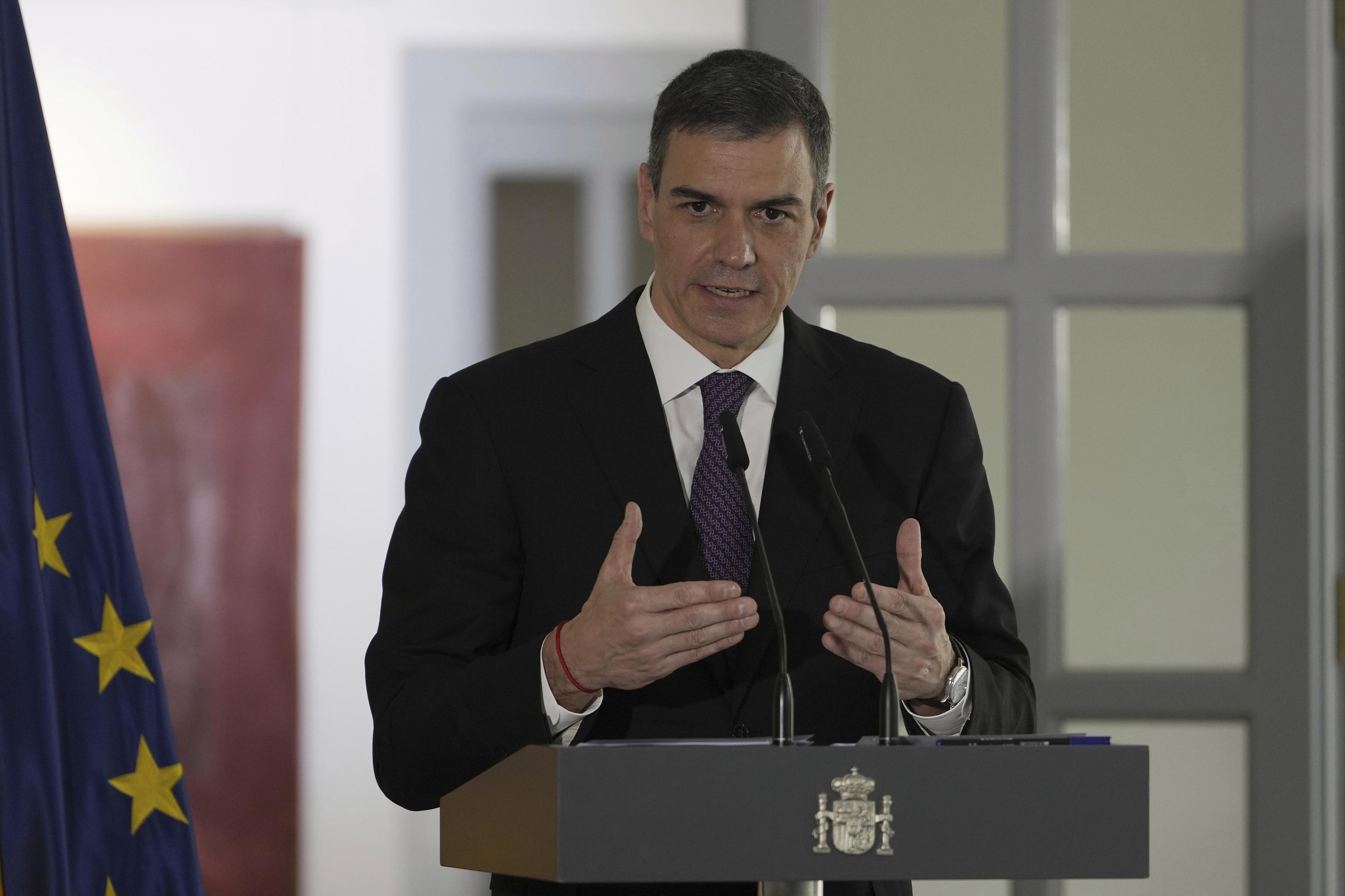Spain is standing its ground. Faced with NATO's demand for allies to allocate 5% of their GDP to Defense, the Spanish Government is firm. It does not agree. In a letter sent to the Alliance's Secretary-General, Mark Rutte, Pedro Sánchez conveys that Spain "cannot commit at this Summit to a specific spending target in terms of GDP" and, therefore, does not align with the requirement to reach that 5% threshold. Spain's rejection was known, but it is now official with this letter, distancing itself from the position endorsed by Rutte and the USA.
NATO is pressing, and Spain is resisting. The Spanish government's position is that they have agreed to accelerate investment in security and defense to reach 2% this year, which is the threshold they aim to achieve and maintain, without accepting the increase in spending demands. "For Spain, committing to a 5% target would not only be unreasonable but counterproductive, as it would move us away from optimal spending and hinder current EU efforts to strengthen its security and defense ecosystem," writes the President of the Government in the letter.
Faced with NATO's demands and the accounts presented, a need for increased investment to be better prepared for challenges like Russia, Sánchez presents his own figures to support his rejection of the 5%. Spain's stance is that our country "will need a 2.1% expenditure, according to estimates from our Armed Forces, sufficient investment to acquire and maintain all personnel, equipment, and infrastructure required by the Alliance."
With these figures, Spain's position, in a context where there are countries, especially those feeling more threatened by Russia, that agree with the increase, is as follows: "In the current context, and in line with the recently agreed Capacity Objectives in NATO, for us, this balance consists of allocating 2% of our GDP to defense and security, while continuing to invest in diplomacy, trade, social policies, and international development aid."
However, in Sánchez's arguments, there is a significant point. The plan to invest ¤10.471 million announced by the head of the Government in April was based on not diverting a single euro from social spending. This was the message structured to reassure his partners, who oppose increased spending on Defense. For days, Sánchez and his ministers hammered home that the Welfare State would not be affected. But NATO's demand, pressured by Donald Trump, makes Sánchez's commitment unfeasible, as he points out.
"That level of spending would be incompatible with our Welfare State and our worldview. Intentions are powerful, but they rarely prevail over empirical reality. And the empirical reality is that, for Spain, as for other NATO countries, reaching a 5% spending level will be impossible unless taxes on the middle class are increased, public services and social benefits are cut, and our commitment to ecological transition and international cooperation for development is reduced," he argues.
The 'Sánchez formula' to exclude Spain
One of the proposals being worked on within the Alliance is the 3.5+1.5 formula. The explanation of this model is as follows. On one hand, countries should reach 3.5% of GDP in classic military spending, which has always been counted as Defense investment. Tanks, weapons, aircraft, or any concept directly related to the military sphere. On the other hand, the mentioned formula would allow allies to include another 1.5% of GDP in security-related investments. A kind of soft spending, where factors not in the classic definition would be added, which is what Sánchez is advocating for.
The President of the Government presents Rutte with his own formula to prevent Spain from being forced to reach that 5% of GDP, which would entail billions and would already require approval from the Congress, an option he has avoided so far as it would demonstrate the rejection of his partners and that La Moncloa would fall into the hands of the PP.
Sánchez's formula involves requesting the inclusion of a more flexible formula in this year's declaration: "one that recognizes each Ally's path to meeting their respective Capacity Objectives and makes the spending target optional, or one that excludes Spain from the spending target. Similar exceptions have been made in the past for other Allies, and there are compelling reasons to do so now."
In essence, maintaining the 5% target in the declaration, but only for those allies who need or wish to pursue it.
